I'd like to respectfully request StackOverflow to reconsider this change.
The decision to stop tracking reputation rank for most developers seems a bit heavy handed. Many developers value their rank on StackOverflow and it's a small important reward for the work they have put into helping the StackOverflow community.
As others have mentioned tracking the reputation of only the top 400 developers is far too narrow.
Take my case as an example. I've been ranking at about the top .7% both for this year and for all time. And yet, currently, I'm not ranked. That's crazy. I'm in the top 1% of developers on StackOverflow and I no longer get a ranking?! What?!
The ranking page says I need 35 points for the week to be tracked.
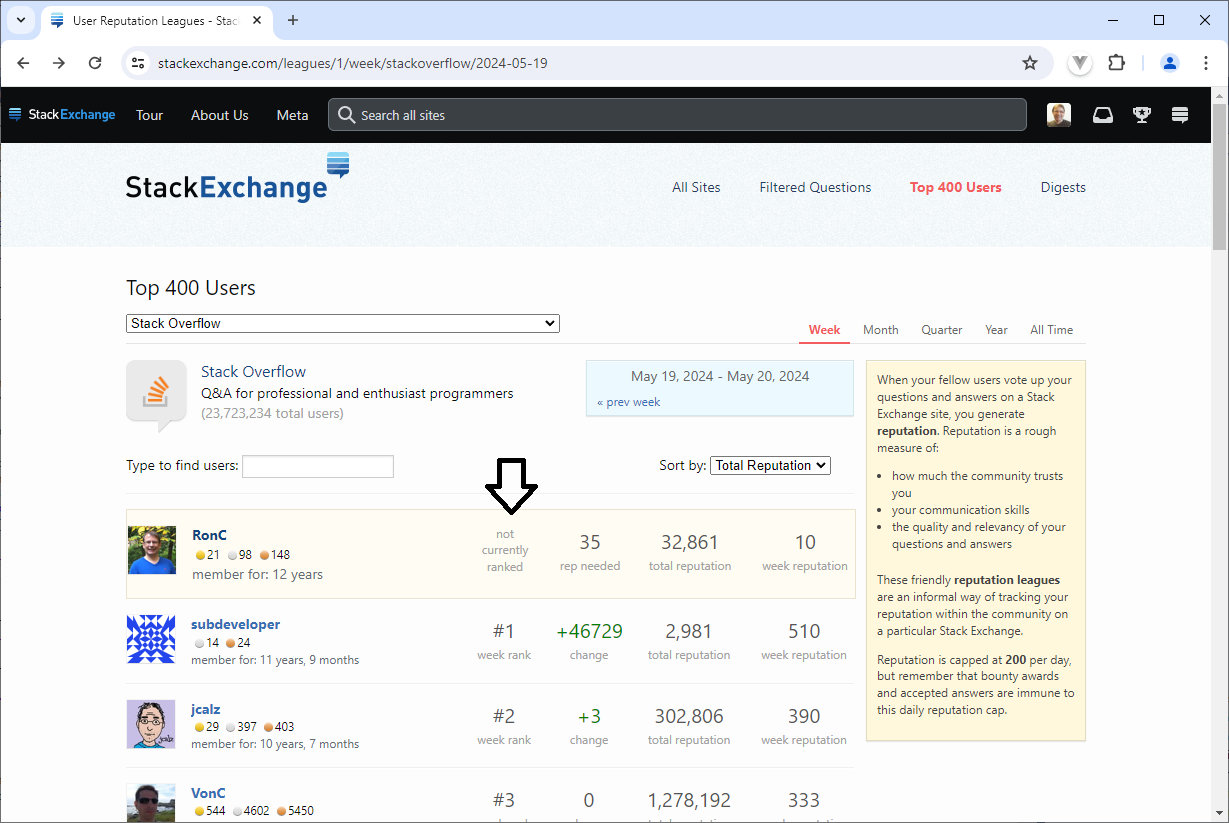
While I think that's far too high of a threshold (35 points for the year would be much more inclusive), I've earned 50 points for the week and still no ranking.
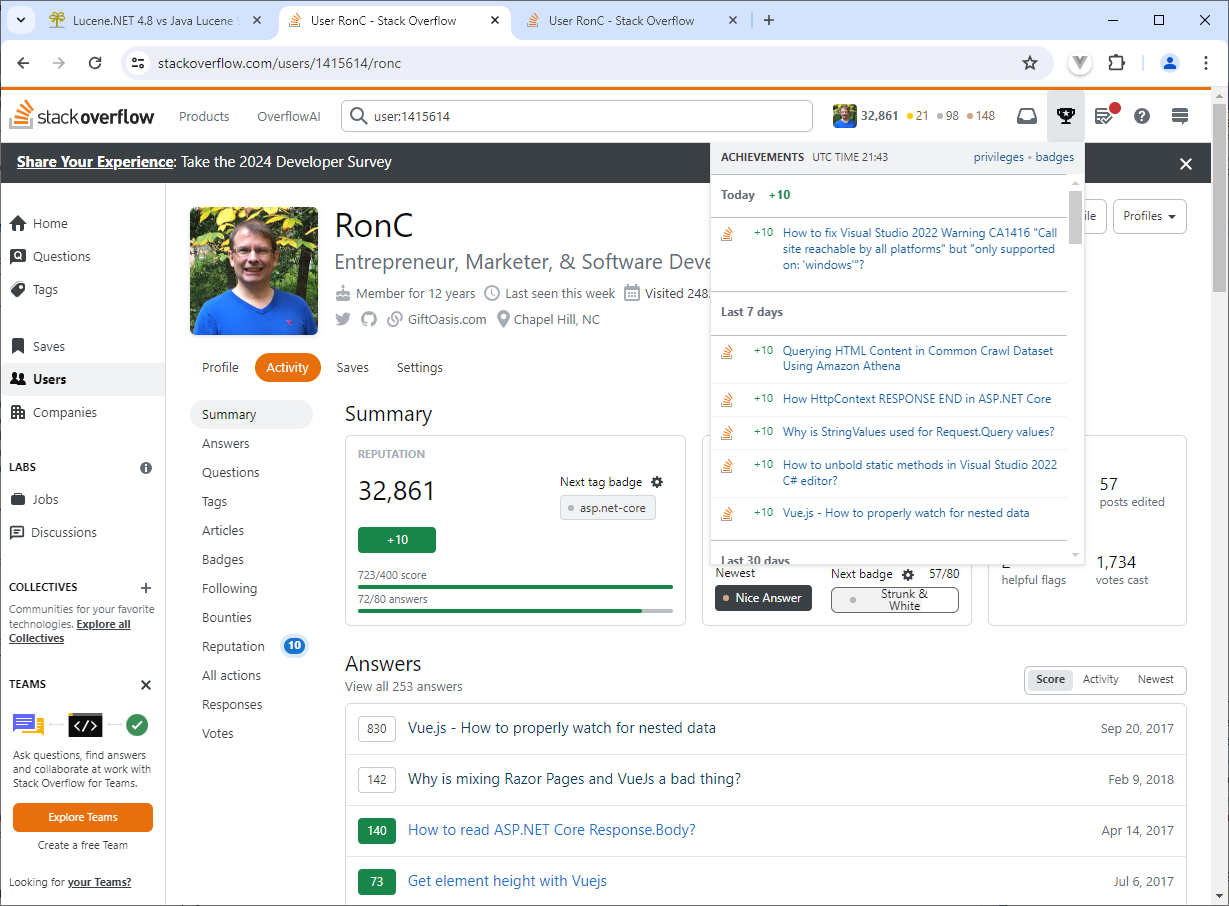
Update 1 day after Original Post
It's Wednesday. I now have 40 points for the week (see below) and 50 for last week (see prior screenshot), but I still have no rank on my profile activity page.
So tell me again, how is this new system supposed to work? Maybe the issue is that of the 40 this week, 20 are from StackOverflow and 20 are from StackExchange Meta.
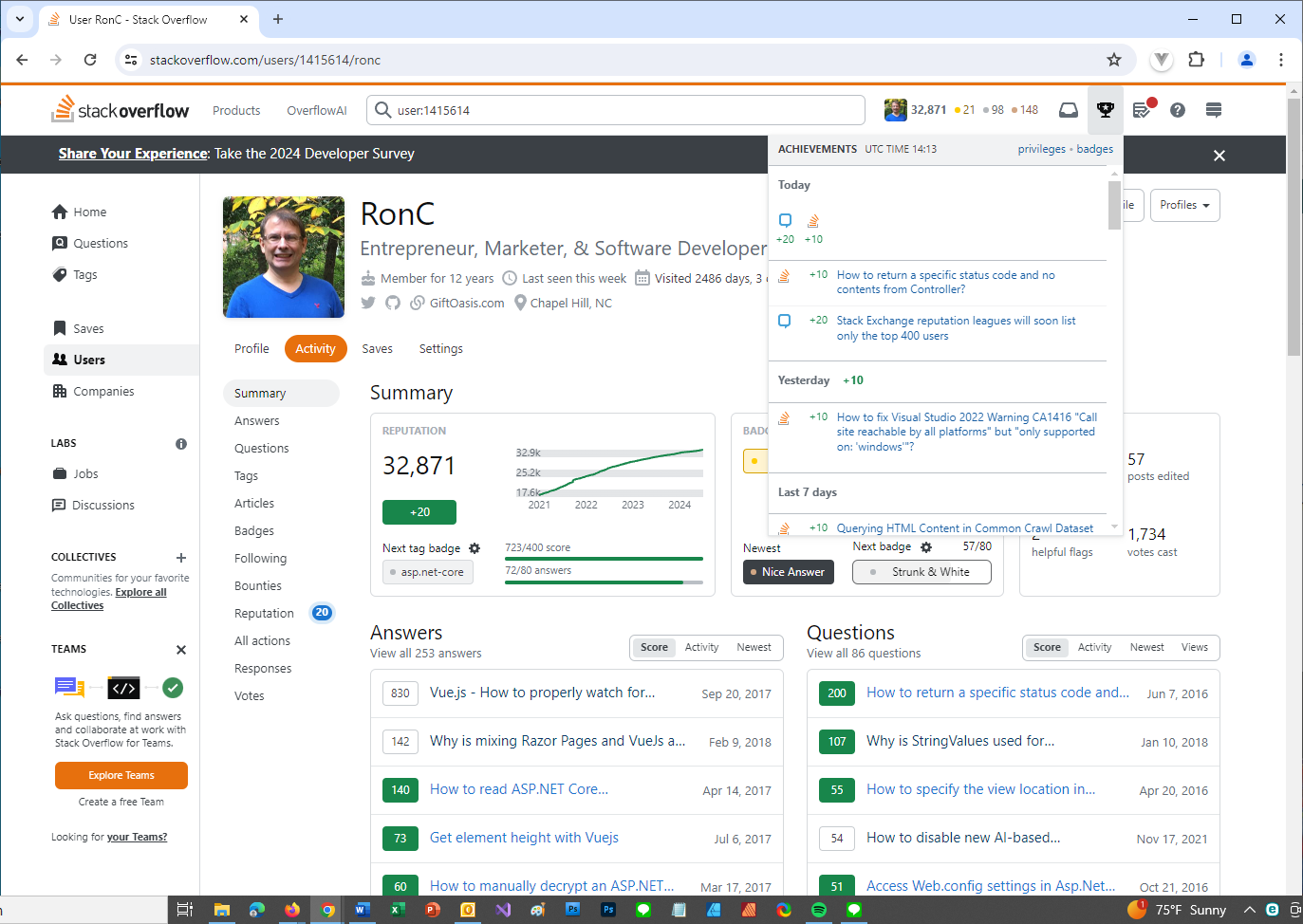
Update 3 days after Original Post
It's Friday. I now have 40 reputation this week just on StackOverflow alone which come from 20 today and 20 yesterday. And I have 50 on StackOverflow alone the prior week.
And still, the profile shows no ranking.
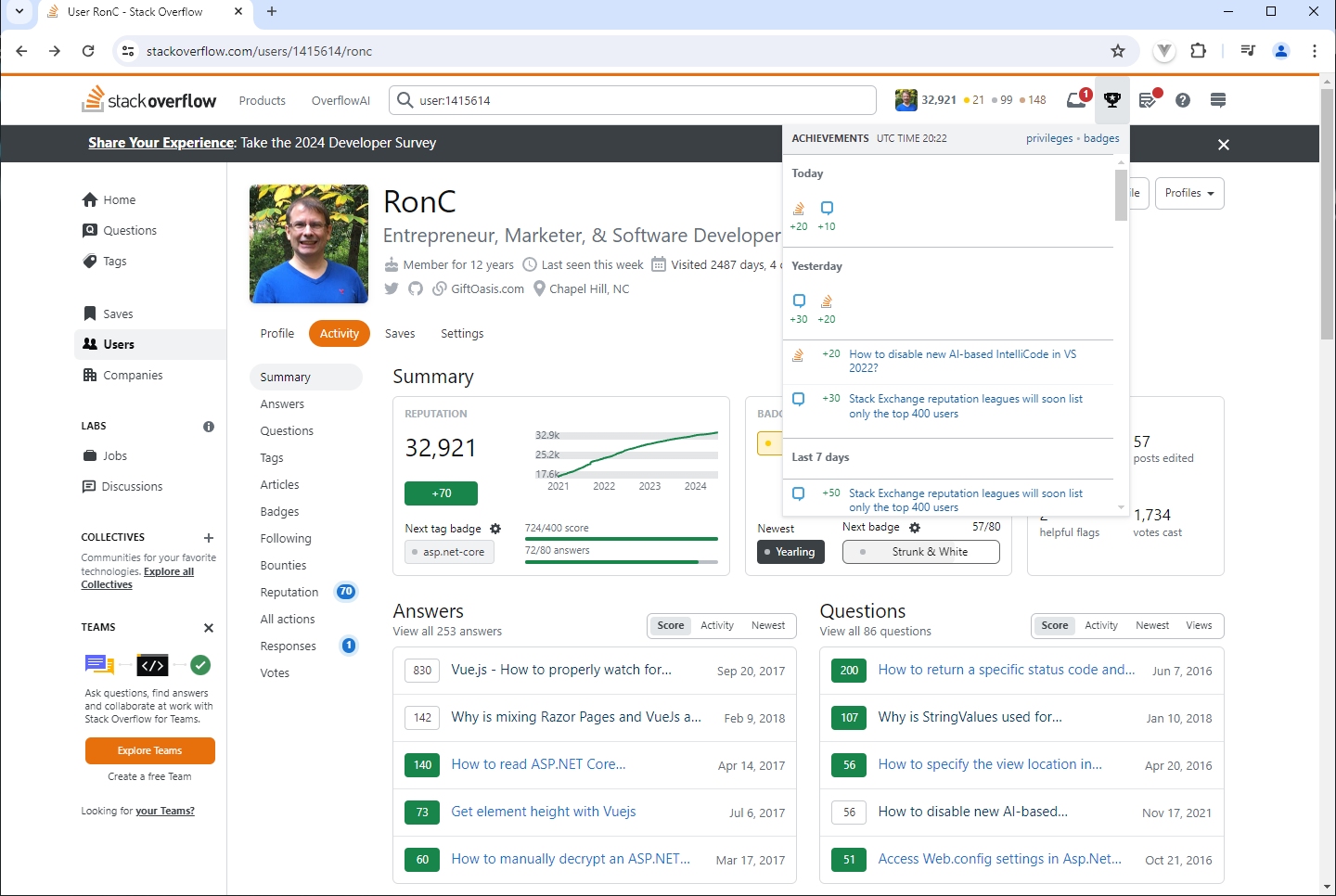
One thing I learned is that the "Prior Week" shown in the menu is based on a sliding prior week rather then a cutoff day. So the prior week today is a different set of days than the prior week yesterday or the day before. I guess this makes perfect sense. But it makes it even harder to explain why there is no rank on the profile.
@slate Here are multiple screen grabs showing what the points menu currently looks like in my account. The new algorithm isn't providing a rank on the profile for people who received greater than 50 points in the last week.
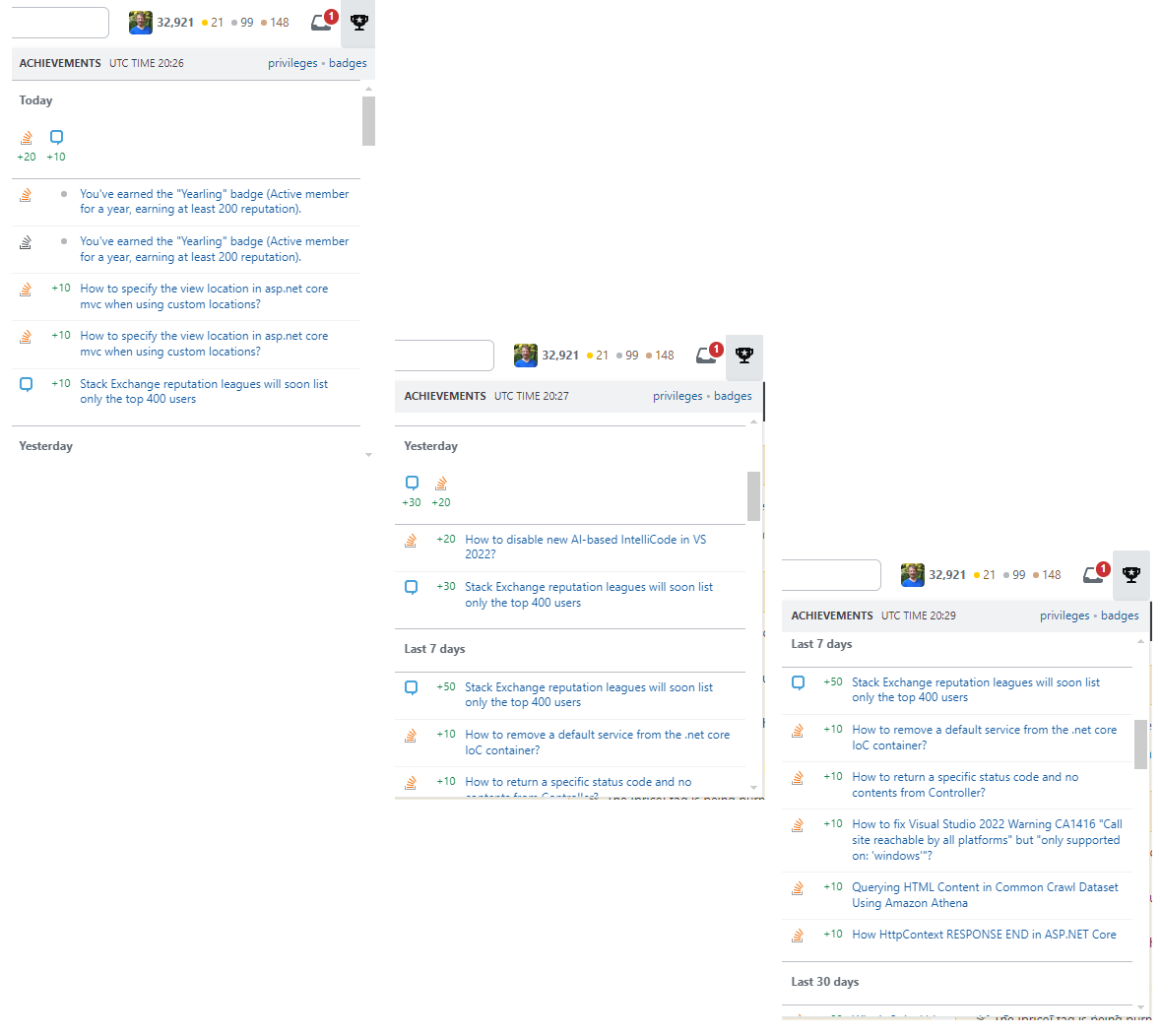
Here is a link to my StackOverflow profile: https://stackoverflow.com/users/1415614/ronc
Recommendation
If previously any developer with 200 reputation received a rank (about 800,000 users) and that was more than the system could handle without timing out the query periodically, how about raising the threshold to 1000 reputation points?
This would still be a large inclusive pool of developers, and for new developers, the hill to climb to get to that level (1000 points) is somewhat reasonable.
Raising the threshold from 200 to 1000 points should greatly reduce the amount of work the query needs to do and hopefully allow it to consistently return results without timing out.
But why does it matter?
A developer's rank, in many cases, literally helps them get jobs.
Don't take that away from them.
Developers shouldn't need 30K+ reputation to get ranked.
Motivation Misunderstood: Why Developer Rank Should Matter to Stack Overflow
Today, October 31, 2024—about five months since my original post—I revisited Stack Overflow and noticed a "Welcome back, RonC" message alongside a new chart displaying my reputation growth and badge progress. It made me laugh; it seems like Stack Overflow is trying to re-engage users by highlighting their progress.
However, what management is missing is that rank is the true motivator for developers. Without a ranking system, developer participation will continue to decline.
Management couldn’t have picked a worse time to remove developer rank. On the consumption side, developers are increasingly turning to LLMs for programming questions, and now on the production side, Stack Overflow has just removed a key motivator for participation.
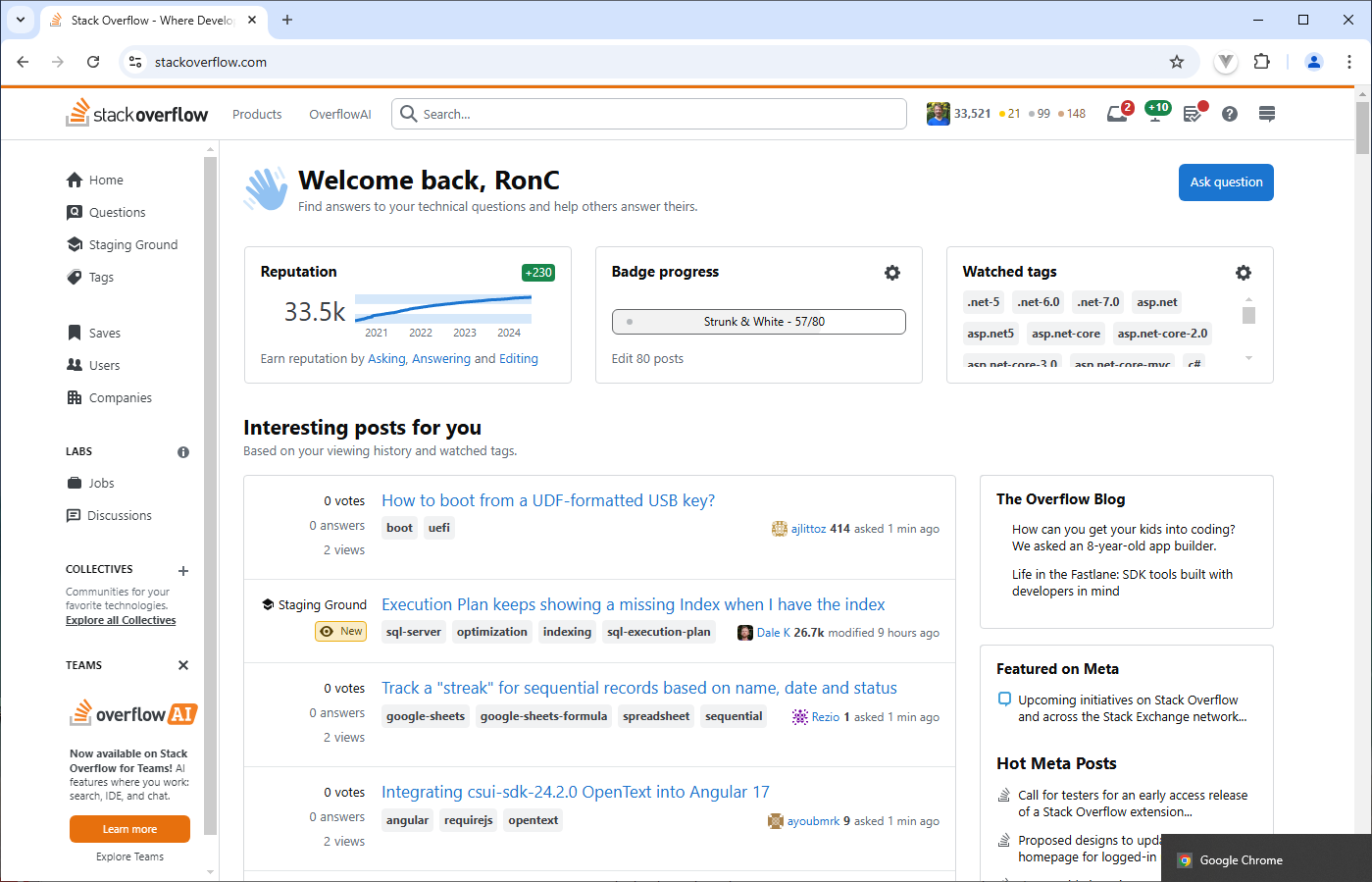







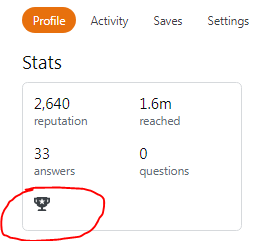

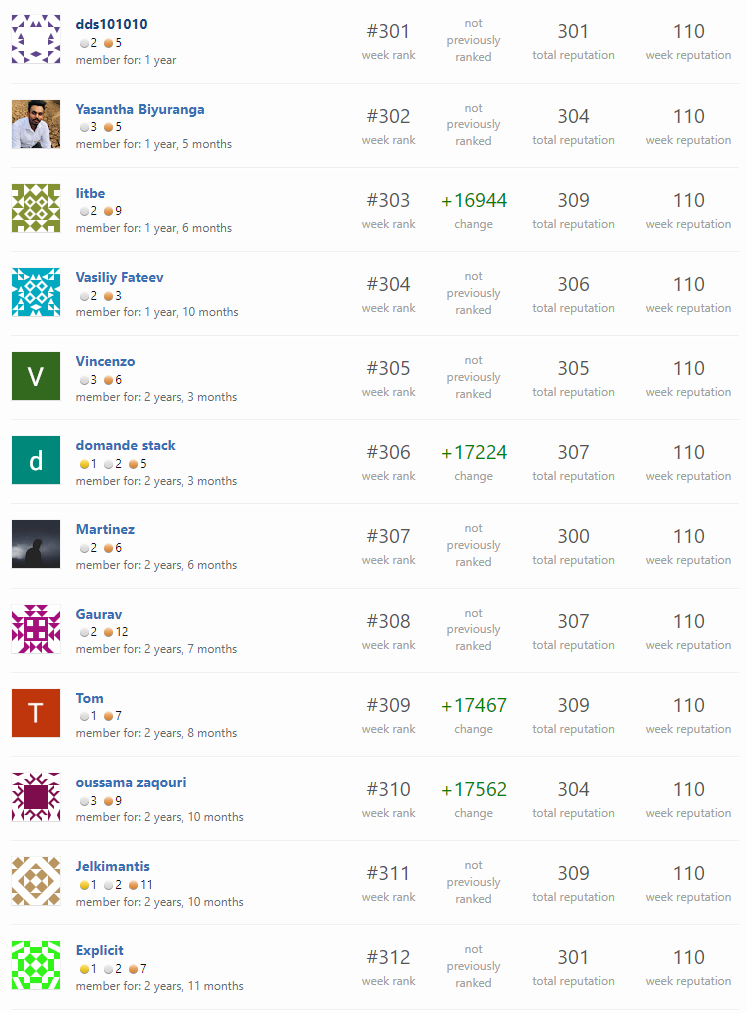
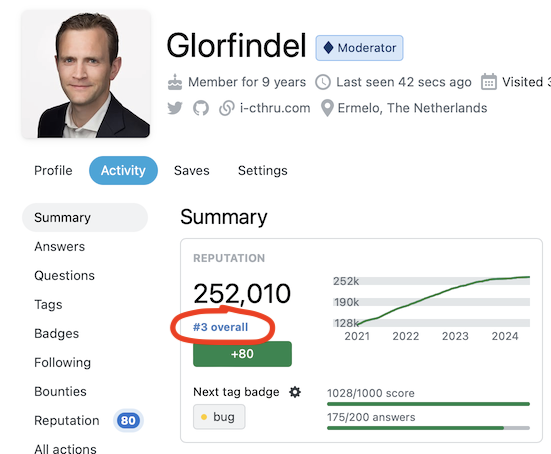
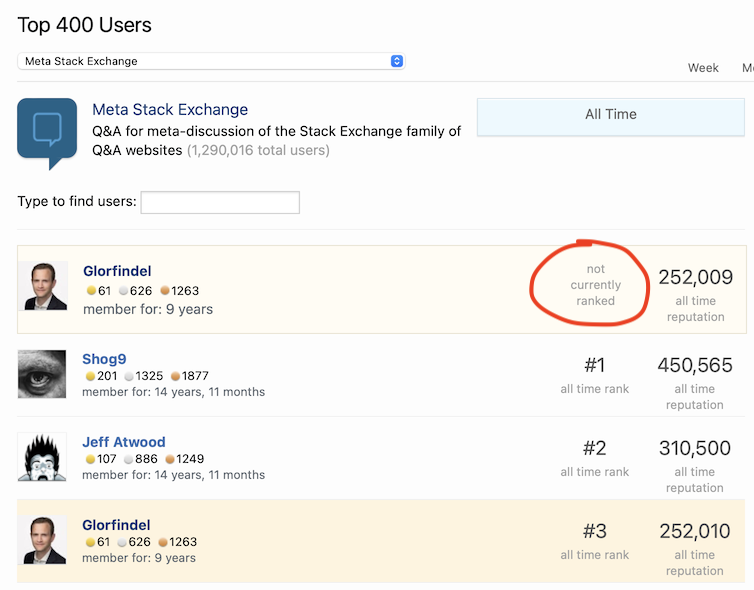
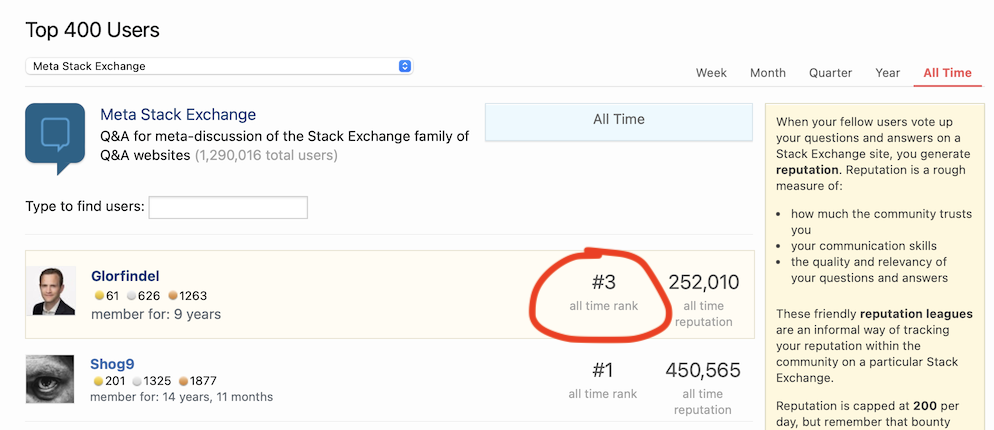
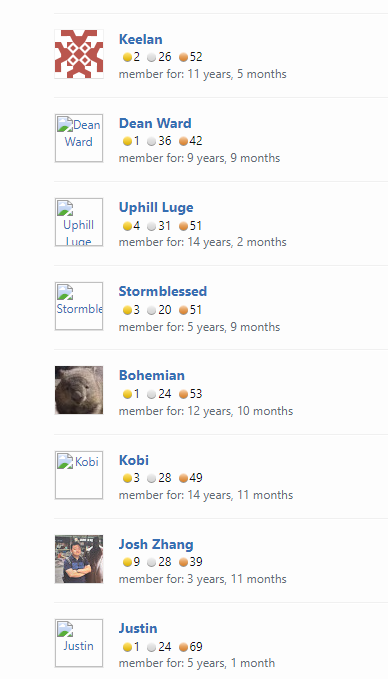
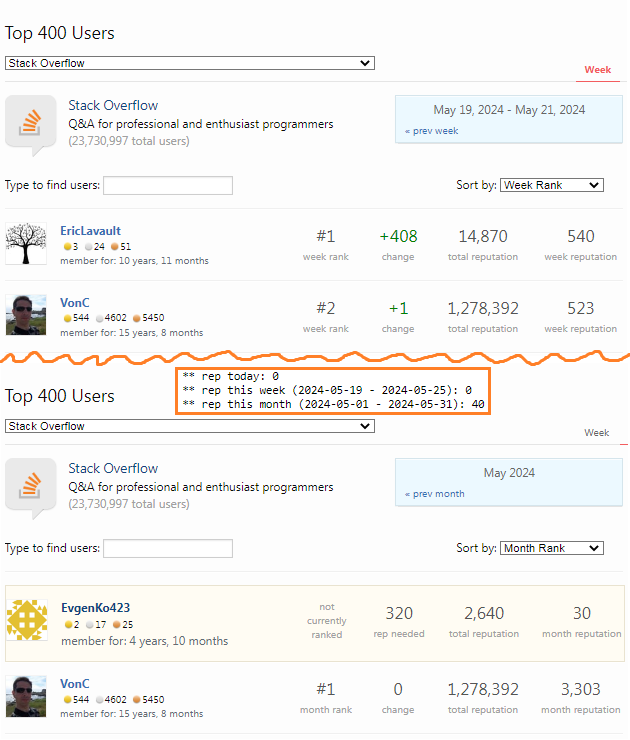
xxx.stackexchange.com/userswill not be affected at all by this change? At first I assumed that's what you meant by "leagues", and downvoted the post accordingly, but after a more careful reading, it seems you're only talking about the lists that appear atstackexchange.com/leagues, which are checked by far fewer people (I'd almost call them a hidden feature) and therefore would be less of a loss.stackexchange.com/leagues. The per-site users page will not be affected.Due to query timeouts, the data are often out of date or inaccurate.Ahem, my rates are reasonable.